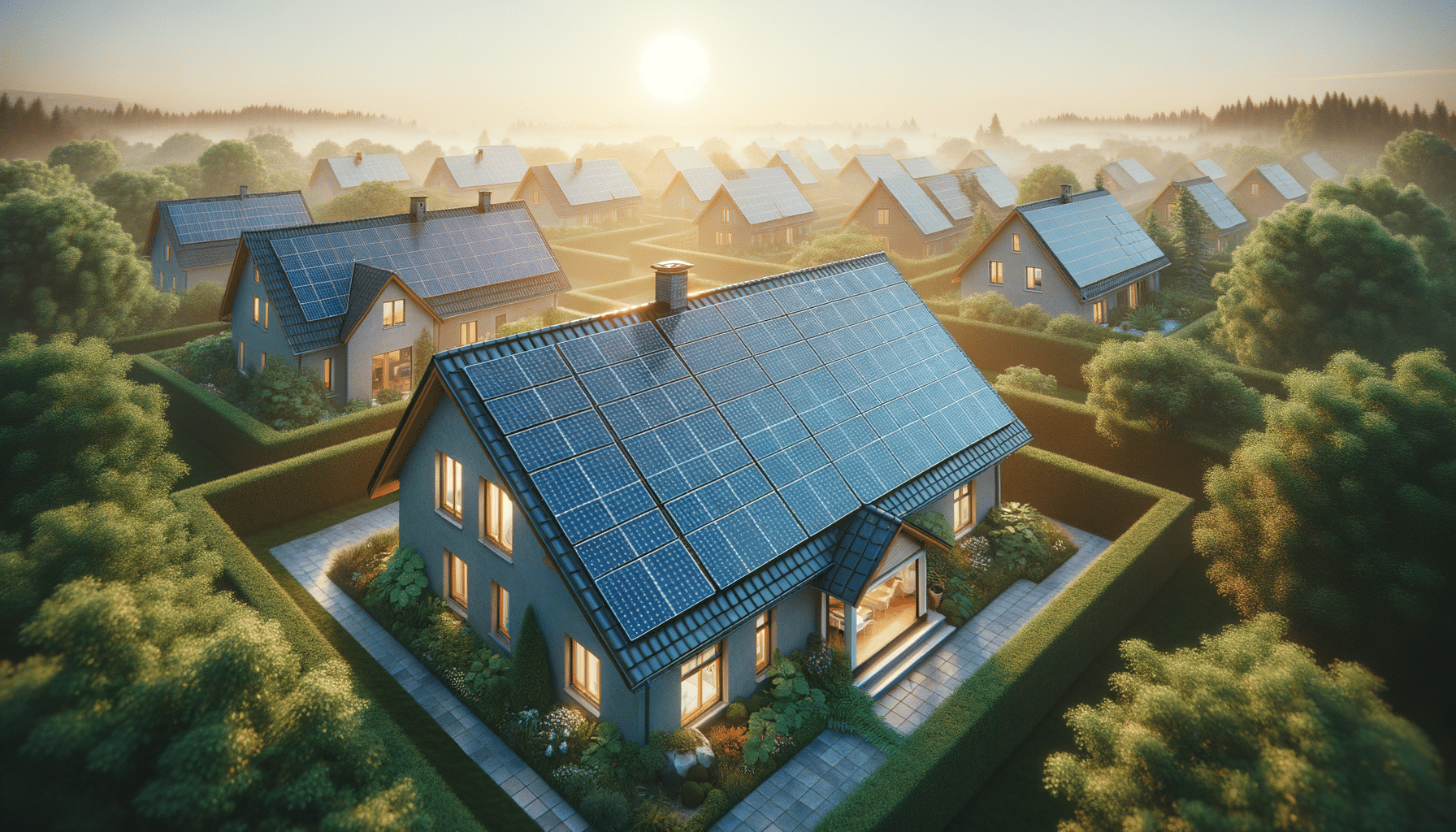
How to Choose Solar Panels for Your Home
Introduction to Solar Panels
As the world gravitates towards sustainable energy solutions, solar panels have emerged as a highly regarded option for homeowners. Not only do they represent an environmentally friendly choice, but they also offer significant cost savings over time. By harnessing the sun’s energy, solar panels provide a renewable power source, reducing reliance on fossil fuels and minimizing carbon footprints. Understanding the nuances of solar panel technology is crucial for making informed decisions that align with both personal and environmental goals.
Types of Solar Panels
When considering solar panels for your home, it’s essential to recognize the variety of options available. Primarily, solar panels can be categorized into three types: monocrystalline, polycrystalline, and thin-film solar panels. Monocrystalline panels are renowned for their high efficiency and longevity, making them a popular choice among homeowners seeking exceptional quality. These panels are characterized by their uniform appearance and are often more efficient in converting sunlight into electricity, especially in limited space.
Polycrystalline panels, on the other hand, are known for being cost-effective while offering a slightly lower efficiency compared to their monocrystalline counterparts. They are easily recognizable by their bluish hue and square-shaped cells. Thin-film panels, though less efficient, offer flexibility and versatility in their application. They are lightweight and can be integrated into unconventional spaces where traditional panels might not fit.
Each type of panel has its advantages and ideal use cases, making it crucial to assess your specific needs and constraints before making a decision. Consider factors such as available roof space, budget, and the specific energy needs of your household when selecting the type of solar panel.
Factors to Consider When Choosing Solar Panels
Choosing the right solar panels involves evaluating several critical factors that impact both performance and cost-effectiveness. One of the primary considerations is the efficiency of the solar panels, which determines how much sunlight can be converted into usable electricity. Higher efficiency panels, such as monocrystalline, tend to be more expensive but offer greater energy output, which can be beneficial in areas with limited sunlight.
Durability and warranty are also significant factors. Solar panels are a long-term investment, typically lasting 25 to 30 years. Ensuring that the panels come with a robust warranty can provide peace of mind and protect against unforeseen issues. Additionally, the installation process and the reputation of the installation company should be considered, as proper installation is crucial for optimal performance and longevity.
Finally, consider the aesthetic appeal of the solar panels, especially if curb appeal is important to you. Some panels offer a sleek, modern look that can complement the architecture of your home, while others may be more utilitarian in appearance.
Cost and Financial Incentives
One of the most compelling reasons to invest in solar panels is the potential for long-term financial savings. The initial cost of purchasing and installing solar panels can be substantial, but various financial incentives can help offset these expenses. Many governments offer tax credits, rebates, and other incentives to encourage the adoption of solar energy, significantly reducing the effective cost of installation.
In addition to governmental incentives, many utility companies offer net metering programs that allow homeowners to sell excess energy back to the grid. This can further reduce electricity bills and even provide a source of income. Over time, the savings on energy costs can outweigh the initial investment, making solar panels a financially sound decision for many homeowners.
It’s essential to research and understand the specific incentives available in your area, as these can vary widely by region. Consulting with a professional solar installer can provide insights into potential savings and help navigate the financial aspects of solar panel installation.
Environmental Impact of Solar Panels
Beyond financial savings, the environmental benefits of solar panels are substantial. Solar energy is a clean, renewable resource that significantly reduces greenhouse gas emissions compared to traditional energy sources. By choosing solar panels, homeowners contribute to the reduction of air pollution and the mitigation of climate change.
Solar panels also reduce dependency on finite resources like coal and natural gas, promoting energy independence and sustainability. The manufacturing process of solar panels has an environmental footprint, but technological advancements and recycling initiatives are continually improving the sustainability of solar panel production and disposal.
Incorporating solar panels into your home not only supports a cleaner environment but also sets a precedent for future generations to prioritize renewable energy solutions. By making a conscious choice to invest in solar energy, homeowners can play a pivotal role in the transition towards a more sustainable and environmentally conscious society.


